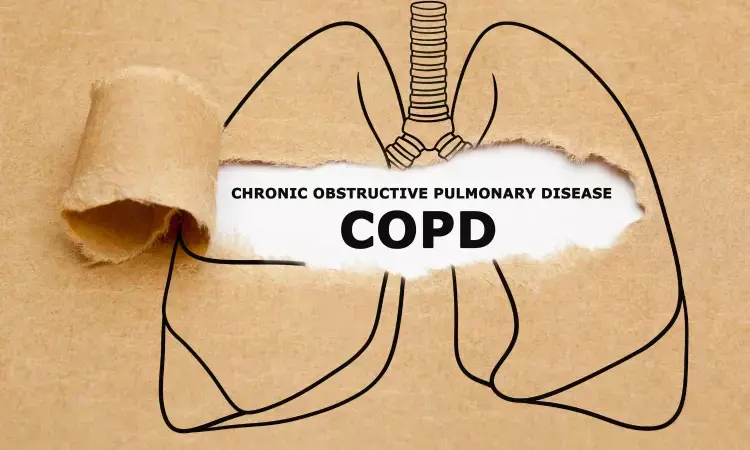- Home
- Medical news & Guidelines
- Anesthesiology
- Cardiology and CTVS
- Critical Care
- Dentistry
- Dermatology
- Diabetes and Endocrinology
- ENT
- Gastroenterology
- Medicine
- Nephrology
- Neurology
- Obstretics-Gynaecology
- Oncology
- Ophthalmology
- Orthopaedics
- Pediatrics-Neonatology
- Psychiatry
- Pulmonology
- Radiology
- Surgery
- Urology
- Laboratory Medicine
- Diet
- Nursing
- Paramedical
- Physiotherapy
- Health news
- Fact Check
- Bone Health Fact Check
- Brain Health Fact Check
- Cancer Related Fact Check
- Child Care Fact Check
- Dental and oral health fact check
- Diabetes and metabolic health fact check
- Diet and Nutrition Fact Check
- Eye and ENT Care Fact Check
- Fitness fact check
- Gut health fact check
- Heart health fact check
- Kidney health fact check
- Medical education fact check
- Men's health fact check
- Respiratory fact check
- Skin and hair care fact check
- Vaccine and Immunization fact check
- Women's health fact check
- AYUSH
- State News
- Andaman and Nicobar Islands
- Andhra Pradesh
- Arunachal Pradesh
- Assam
- Bihar
- Chandigarh
- Chattisgarh
- Dadra and Nagar Haveli
- Daman and Diu
- Delhi
- Goa
- Gujarat
- Haryana
- Himachal Pradesh
- Jammu & Kashmir
- Jharkhand
- Karnataka
- Kerala
- Ladakh
- Lakshadweep
- Madhya Pradesh
- Maharashtra
- Manipur
- Meghalaya
- Mizoram
- Nagaland
- Odisha
- Puducherry
- Punjab
- Rajasthan
- Sikkim
- Tamil Nadu
- Telangana
- Tripura
- Uttar Pradesh
- Uttrakhand
- West Bengal
- Medical Education
- Industry
Zolpidem use not linked with exacerbation or increased mortality in COPD patients

Chronic obstructive pulmonary disease patients newly prescribed non-benzodiazepine benzodiazepine receptor agonists (NBZRAs) such as zolpidem (Ambien, Intermezzo and other brands), a class of hypnotic drugs prescribed for insomnia, did not have an increased risk of exacerbations requiring hospitalizations or of death than those prescribed other types of hypnotics, according to research published at the ATS 2023 International Conference. When compared to those without hypnotic drug prescriptions, however, the researchers found a greater risk of death or exacerbations.
“While frequently used to treat insomnia, NBZRAs are associated with respiratory depression and even death in patients with COPD,” said lead author Jason Castaneda, MD, internal medicine resident, University of Washington, Seattle. “While multiple observational studies have shown this to be the case, these studies have lacked an active comparator-another class of drugs to compare with NBZRAs. This can be a confounding factor given that insomnia itself is associated with these risks for COPD patients.”
To tease out the role of NBZRAs, the researchers designed a study that used thousands of medical records from the Veterans Health Administration to compare the risk of death or inpatient exacerbations for COPD patients who were given new prescriptions for NBZRAs with patients given other drugs that were hypnotics but were not NBZRAs. Among the other hypnotics were melatonin, ramelteon (Rozerem), trazodone (Desyrel, Oleptro) and doxepin (Silenor, SINEquan).
They matched patients receiving NBZRAs and other hypnotics on 40 variables, such as demographics, medical and sleep disorders, and COPD severity. They also matched patients taking NBZRAs with those taking no hypnotic drugs. Dr. Castaneda and colleagues used a Cox statistical model to compare all-cause death or inpatient COPD exacerbation within one year.
The scientists identified 1,276 COPD patients who received new NBZRA prescriptions in the Veterans Health Administration records, and 3,372 who received new prescriptions for other hypnotics. When the NBZRA patients were matched with the same number of patients prescribed other hypnotics, the researchers found no difference in mortality or inpatient exacerbation risk. When matched with the same number of COPD patients who were not prescribed NBZRAs or other hypnotics, they observed greater risks of both death and exacerbation from the drugs.
Commenting on the meaning of the study’s findings, Dr. Castaneda stated, “The greater risk of hypnotic drugs may reflect residual, unmeasured confounding related to insomnia. It may also represent true adverse events from hypnotics that cut across hypnotic classes. We need additional research so that we may better understand the risks of hypnotics among patients with COPD, and then optimize strategies to safely improve symptoms.”
Reference:
Insomnia drug class may not influence death and exacerbation risks among patients with COPD, American Thoracic Society, Meeting, ATS 2023 International Conference.
Dr Kamal Kant Kohli-MBBS, DTCD- a chest specialist with more than 30 years of practice and a flair for writing clinical articles, Dr Kamal Kant Kohli joined Medical Dialogues as a Chief Editor of Medical News. Besides writing articles, as an editor, he proofreads and verifies all the medical content published on Medical Dialogues including those coming from journals, studies,medical conferences,guidelines etc. Email: drkohli@medicaldialogues.in. Contact no. 011-43720751


